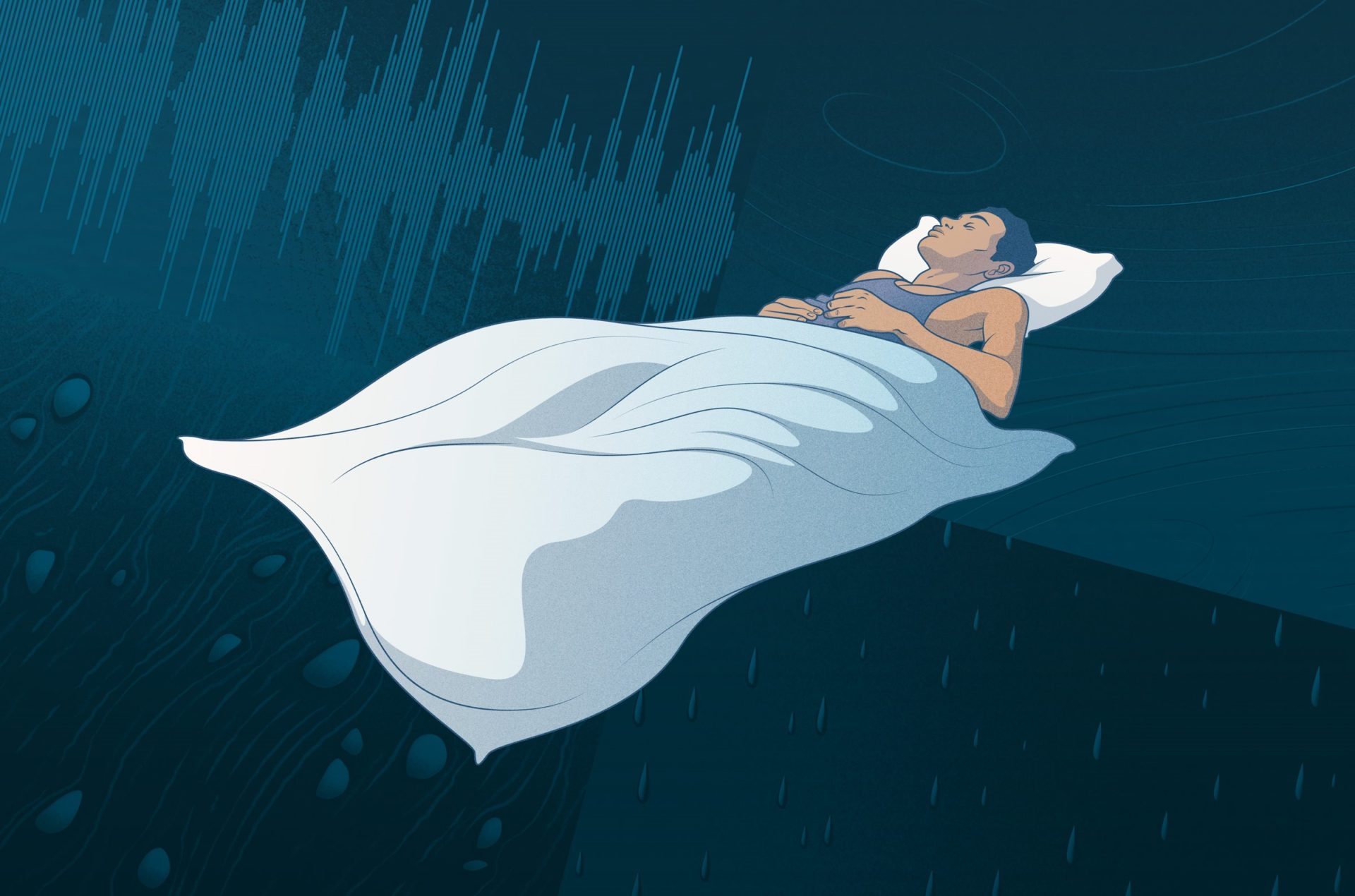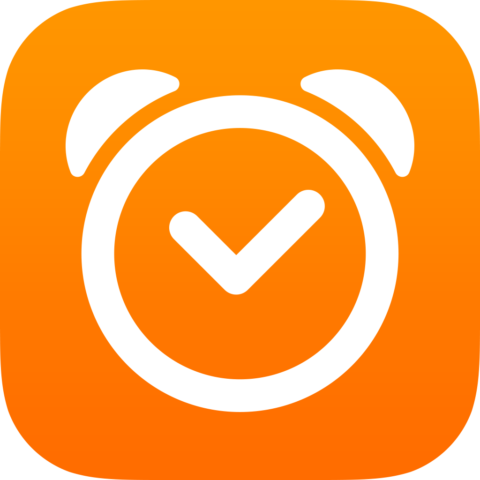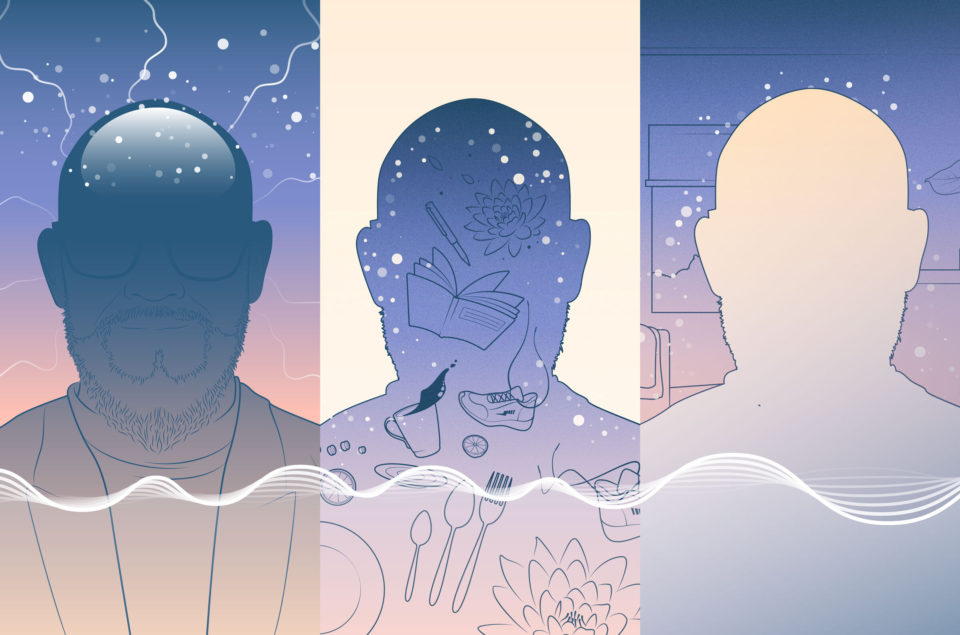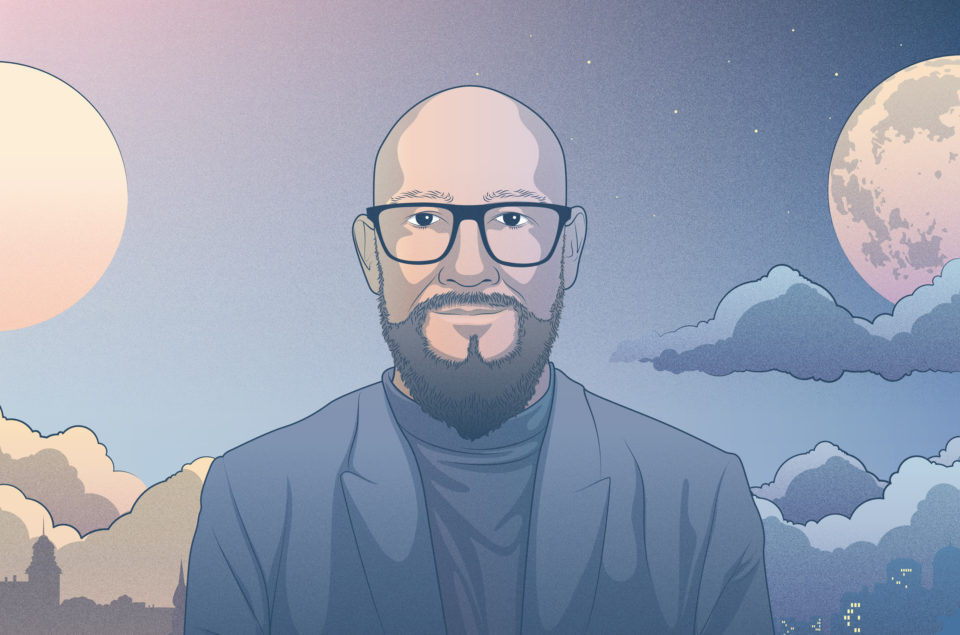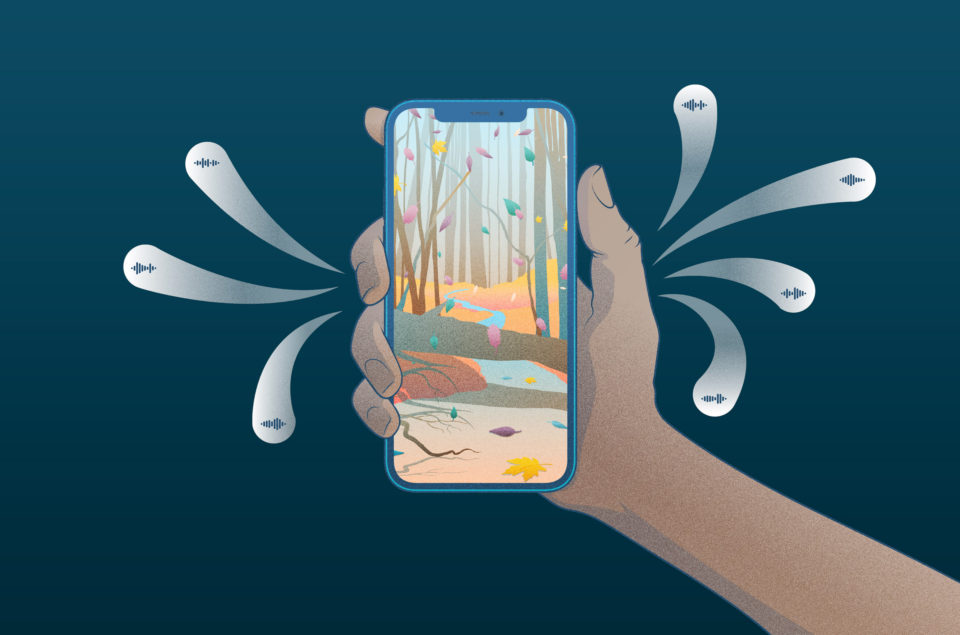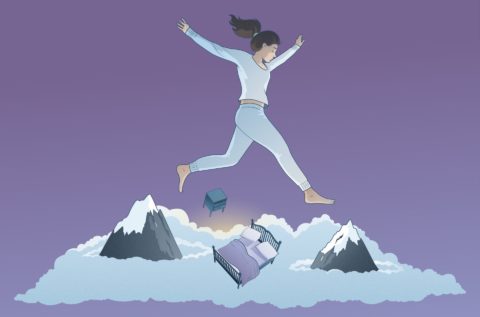Sound is one of the many sensory cues our brains tune into when we sleep. What we hear can have either a positive or negative impact on how we fall asleep and on the quality of rest we get.
A jarring noise like a siren—even if it’s a low decibel—can jolt us out of bed, just as music or the sound of rain against the roof can actually help us fall asleep. As humans, our brains are hard-wired to respond to sounds by perceiving them as threatening or non-threatening.
The most conducive sounds for sleep
Sounds found in nature have a more soothing effect on us than artificial sounds.
In this pivotal study from University of Sussex, researchers conducted brain scans on 17 healthy adults while exposing them to five-minute series of both natural and manmade soundscapes. They found that playing natural sounds, “affected the bodily systems that control the flight-or-flight and rest-digest autonomic nervous systems.” In other words, natural sounds were associated with the resting activity of the brain. When artificial sounds were played, brain connectivity was similar to that observed in anxiety, PTSD and depression.
Water sounds—rain, ocean waves, a babbling brook—are particularly conducive for sleep. Why? According to researchers, it has to do with our survival instinct. Loud noises that come out of nowhere alert us to danger. On the other hand, the rhythmic hum of water is something we perceive as non-threatening, and therefore has a calming effect. Water sounds can even masque other noises around the house that we don’t want to hear.
Sleep Cycle users prefer water sounds
Sleep aids that emit background noise for sleep have become popular in recent years.
The Sleep Cycle app, in addition to its smart alarm and multiple tracking features, contains an extensive content library called Sleep Aid. This curated selection of sounds, stories, relaxation guides, music and poetry, is designed to help users fall asleep.
We took a look at what people were tuning into most in Sleep Aid and found that on any given night, anywhere around the world, more users were listening to water than any other sound. In fact, of the 70+ options in Sleep Aid, the four most popular sounds for sleeping are:
- Evening rain
- Ocean waves
- Muscle relaxation
- Heavy rain
“Sleep Aid content draws on our deep experience in the field of sleep,” said Sandra Hansson, CPO, Sleep Cycle. “Just as people have vastly different tastes in music, preferences in what people like to listen to as they’re drifting off to sleep vary, so we have a large selection of sounds to choose from. It’s fascinating that water sounds are the universal favorite of people from all over the world.”
Music as a sleep aid
From boosting serotonin levels to reinforcing a bedtime routine, music is also shown to have a positive effect on sleep. According the Sleep Foundation, music can decrease the amount of time it takes to fall asleep and improve our sleep efficiency. Listening to 45 minutes of music before bed can lead to better sleep quality.
When sound becomes a health risk
Just as some sounds can help us sleep, others have been shown to have a negative impact both on sleep and health.
An important study from 2012 conducted in a hospital setting found that electronic sounds in hospitals, such as alarms, ringing phones and conversations—even at very low volumes—aroused patients 90% of the time from shallow sleep and half the time from deep sleep. It concluded that “sounds during sleep influence both cortical brain activity and cardiovascular function.”
Good sleep hygiene includes creating a relaxing sleep environment. In addition to removing clutter, ensuring good air flow and keeping your room at a comfortable temperature, consider sound as part of your sleep environment.
Try out Sleep Aid in the Sleep Cycle’s app to fall asleep more quickly and easily, and find your favorite on the list.
